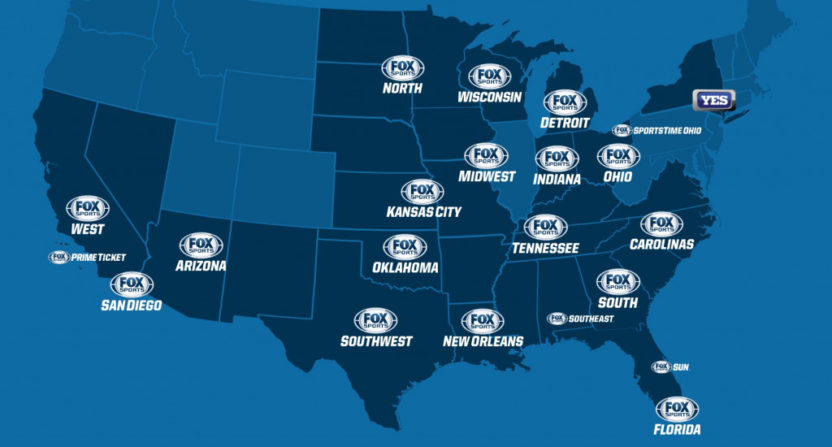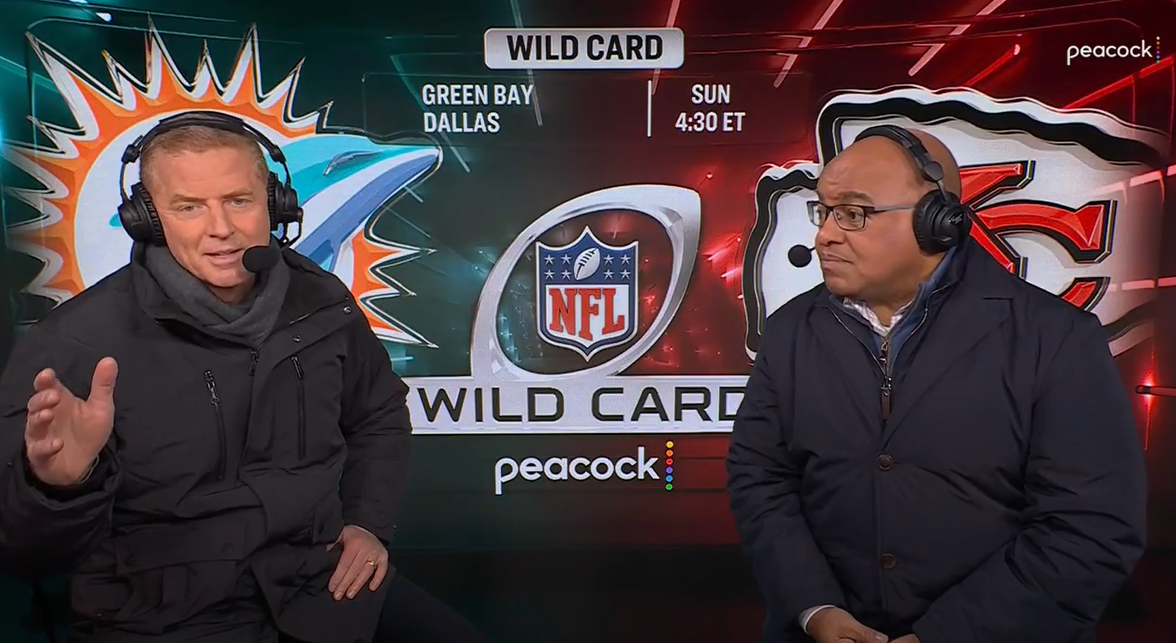When Sinclair officially signed a deal to buy the Fox Sports regional sports networks from Disney late last week, it marked the apparent end of a long saga with those RSNs, and also a dramatic decrease in their expected value. Those RSNs didn’t draw as much interest from other suitors as many had expected at first, with the eventual bids coming in around $10 billion (plus $3.46 billion for YES, which was carved out separately) instead of the initially-estimated $20-22 billion for the networks including YES. In the end, Sinclair paid $9.6 billion for the 21 non-YES networks (pending regulatory approval), putting them at an overall valuation of $10.6 billion (thanks to minority interests that weren’t bought out).
So why was that eventual bid so low? Well, financial analyst Craig Moffett of MoffettNathanson spoke to Sports Business Journal‘s John Ourand to discuss that RSN sale, and he was quite skeptical on those networks’ futures. Moffett pointed to upcoming distribution challenges (both with deals with cable and satellite providers and with people choosing not to buy cable or satellite TV) as a reason for the limited bids on these RSNs:
“Even if RSNs secure a deal that gives them 100% distribution on the basic tier for all of their traditional distribution partners, it’s not hard to imagine that they’ll get to a place within a couple of years where the universe of traditional distribution could be falling by 5-10% a year,” he said. “Even in the best possible worlds, you’re looking at a business where distribution could be cut in half over the next couple of years.”
…“The best scenario is that RSNs are carried on the basic tier and they lose half their distribution,” he said. “Their worst scenario is that they become a premium tier and they lose 75% of their distribution. It’s really hard to see any good outcome for an RSN.”
Moffett is far from the only RSN critic out there, of course. Discovery president and CEO David Zaslav said last month that his company didn’t bid for the RSNs because of concerns about their future, saying “We look at it, and we say, ‘It’s near the end. It’s near the end.’ …All these regional sports networks, a couple of years from now, can all that continue? Can you force every customer to pay for sports? I don’t think so.” And Moffett referenced those comments in his response.
Also, while they didn’t outwardly criticize the RSN model, Charter declined to bid for these networks and Fox declined to buy them back. And even the combined Liberty Media/MLB bid, which had tons of resources behind it, didn’t believe in these networks enough to beat out Sinclair. Meanwhile, while Sinclair obviously believes in these networks to some degree, their bid isn’t all that high compared to what had previously been discussed, and they’d been reportedly in and out of the bidding throughout. So this wasn’t even a clear sign of confidence from them.
The latest
- Could NFL see next Saudi sportswashing controversy?
- ESPN and NBA have reportedly ‘essentially come to terms’ on deal that would keep Finals on ABC
- G/O Media sells The Onion to ‘Global Tetrahedron,’ ex-NBC reporter Ben Collins to serve as CEO
- Eli Gold on Alabama exit: ‘You can’t argue with city hall.’
In some respects, Sinclair may be better-equipped to use the RSNs than some of the other rumored or actual bidders. Sinclair president and CEO Chris Ripley said in their release that “While consumer viewing habits have shifted, the tradition of watching live sports and news remains ingrained in our culture,” and “This acquisition is an extraordinary opportunity to diversify Sinclair’s content sources and revenue streams with high-quality assets that are driving live viewing. We also see this as an opportunity to realize cross-promotional collaboration, and synergistic benefits related to programming and production.”
And there will be some benefits on those fronts for Sinclair, even if not as many as ESPN might have reaped. Sinclair does have a lot of local broadcast networks (more than anyone else in the U.S.) which they could pair with the RSNs for carriage negotiations, programming, production, talent pipelines and more. They also own Stadium and Tennis Channel, and could have synergies with those properties too. And they’re now in the RSN game in a big way; they have these 21 RSNs, they have the Marquee network launching next year with the Chicago Cubs, and they’re a minority investor in the Yankees’ repurchase of YES.
So Sinclair’s scale may also prove useful. And maybe in the end, it will turn out that they bought these networks low (thanks to the DOJ-forced sale from Disney and to the skepticism around the RSNs’ future), and that they can make them worth much more. Even with declining distribution, maybe the local MLB and other rights on these networks are valuable enough to make them worthwhile still.
But there are a whole lot of skeptics on how valuable these RSNs will be going forward. And if these wind up near the “worst-case scenario” for distribution, that skepticism may well be validated. Even the “best-case scenario” Moffett outlines seems pretty dire. And that helps illustrate why there weren’t more and higher bids for these networks.





